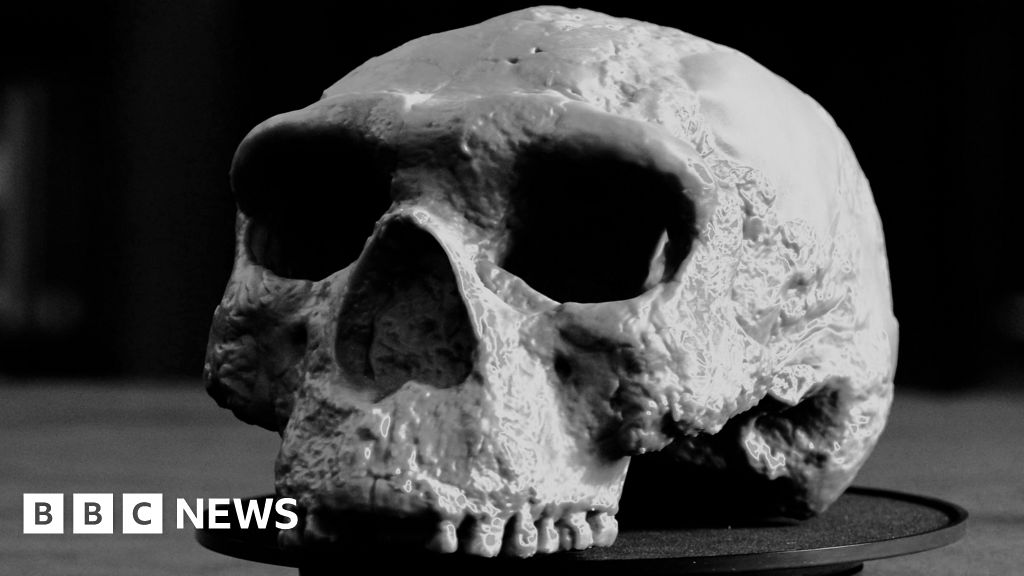Prince.Skeletor
Don’t Be Like He-Man
A million-year-old human skull found in China suggests that our species, Homo sapiens, began to emerge at least half a million years earlier than we thought, researchers are claiming in a new study.
It also shows that we co-existed with other sister species, including Neanderthals, for much longer than we've come to believe, they say.
The scientists claim their analysis "totally changes" our understanding of human evolution and, if correct, it would certainly rewrite a key early chapter in our history.
This startling analysis has dramatically shifted the timeline of the evolution of large-brained humans back by at least half a million years, according to Prof Chris Stringer of the Natural History Museum, a co-lead on the research.
"That picture is still quite unclear to us, so if the conclusions of this research are supported by other analyses, ideally from some genetic data, then I think we would start to be increasingly confident about it," he told BBC News.
The earliest known evidence for early Homo sapiens in Africa is 300,000 years ago, so it is tempting to conclude that our species might have evolved first in Asia.
But there is not enough evidence to be sure at this stage, according to Prof Stringer, because there are human fossils in Africa and Europe that are also a million years old that need to be incorporated into the analysis.
"There is some genetic evidence that points to the even earlier emergence of our species which may have recombined with our lineage, but this is not yet proven," he told BBC News.
The earlier timeline means that the three species of humans co-existed on the planet for around 800,000 years, much longer than previously thought, perhaps interacting and interbreeding in that time.
"Human evolution is like a tree," he said. "This tree included several branches, and there were three major branches that are closely related, and they may have some interbreeding to each other, and they coexisted for almost 1 million years. So this is an unbelievable result."

 www.bbc.com
www.bbc.com
It also shows that we co-existed with other sister species, including Neanderthals, for much longer than we've come to believe, they say.
The scientists claim their analysis "totally changes" our understanding of human evolution and, if correct, it would certainly rewrite a key early chapter in our history.
This startling analysis has dramatically shifted the timeline of the evolution of large-brained humans back by at least half a million years, according to Prof Chris Stringer of the Natural History Museum, a co-lead on the research.
"That picture is still quite unclear to us, so if the conclusions of this research are supported by other analyses, ideally from some genetic data, then I think we would start to be increasingly confident about it," he told BBC News.
The earliest known evidence for early Homo sapiens in Africa is 300,000 years ago, so it is tempting to conclude that our species might have evolved first in Asia.
But there is not enough evidence to be sure at this stage, according to Prof Stringer, because there are human fossils in Africa and Europe that are also a million years old that need to be incorporated into the analysis.
"There is some genetic evidence that points to the even earlier emergence of our species which may have recombined with our lineage, but this is not yet proven," he told BBC News.
The earlier timeline means that the three species of humans co-existed on the planet for around 800,000 years, much longer than previously thought, perhaps interacting and interbreeding in that time.
"Human evolution is like a tree," he said. "This tree included several branches, and there were three major branches that are closely related, and they may have some interbreeding to each other, and they coexisted for almost 1 million years. So this is an unbelievable result."

Million-year-old skull rewrites human evolution, say scientists
New analysis suggests our species began to emerge at least half a million years earlier than we thought






